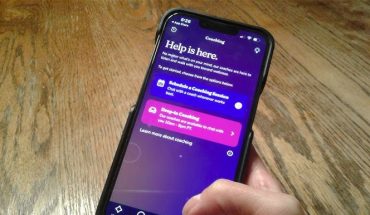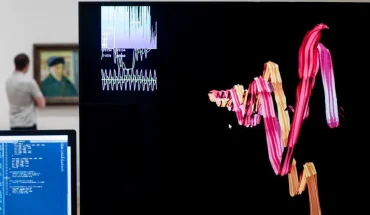A lack of sleep can not only make you tired, it can also negatively impact your overall health, weight, and productivity. According to Statistics Canada, insufficient sleep is associated with a variety of health conditions, including obesity, type 2 diabetes, cardiovascular disease, injuries, irritability, and depression.
Ironically, just as tech might be perpetuating the problem, along with culprits like caffeine consumption, work demands, social commitments, and family dynamics, there’s also tech you can use to help by managing sleep patterns, like activity trackers that let you set bedtime reminders, encouraging more restful sleep, and simply helping you get some ZZZs.
Here are a few interesting items.
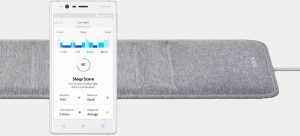 Nokia Sleep
Nokia Sleep
If you’re worried about how much sleep you’re getting, or if you might be suffering from sleep apnea, this tech device might be able to help. Place it under your mattress, download the app, and it reports sleep stages, including deep sleep and REM, along with your heart rate, and your overall Sleep Score. It can even detect snoring through the measurement of low frequency audio signals and respiration rate, to help you determine if there’s a potential problem worth further exploring with a doctor or sleep clinic. Available in the first quarter of this year, it will sell for US$99.
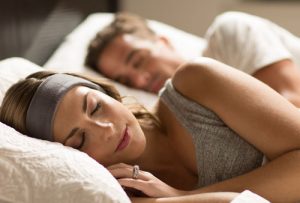 AcousticSheep SleepPhones
AcousticSheep SleepPhones
Some people find that music, or soothing sounds, can help them fall asleep. But what if having the TV on or playing a bedside clock radio bothers your significant other? SleepPhones include a comfortable, fabric headband with thin, removable speakers inside. Put it on, connect it to your phone, then fall asleep to comforting tunes, meditation, audiobooks, or white noise that only you can hear. It’s lightweight, washable, and hypoallergenic, and comes in a variety of colours for US$40 for a corded version, or US$100 for wireless Bluetooth.
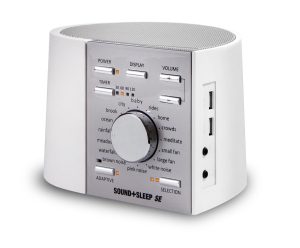 Sound+Sleep Sound Sleep Therapy System
Sound+Sleep Sound Sleep Therapy System
Use this machine at home, or even in hotels while traveling on business, to provide soothing sounds that can help lull you to sleep. It includes 64 distinct sound profiles designed to promote deep sleep, relaxation, and renewal, including waterfalls, meadow, ocean, rainfall, baby, and even city if you find you can’t sleep without the hustle and bustle of downtown city life. All sounds are naturally recorded in high-definition, and never loop. Set a sleep timer for 30, 60, 90, or 120 minutes, then get some much-needed rest. $150
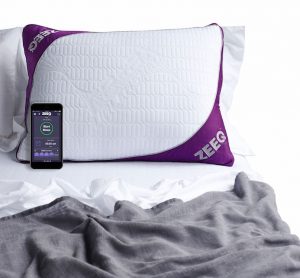 Zeeq Smart Pillow
Zeeq Smart Pillow
Yes, in addition to fully customizable mattresses that help you get the firmness or incline that you desire for a good night’s sleep, there are smart pillows, too. One such model is the Zeeq smart pillow, which has built-in sensors to track your movement and sleep patterns/quality, and detect snoring. If you start snoring, it will emit a slight vibration to encourage you to turn over, or move on your side. It also has built-in speakers so you can listen to music, audiobooks, or other sounds that can help you turn in for the night. It even has a vibrating alarm to help gradually wake you up in the morning. $250
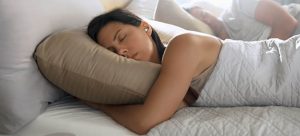 Bose Sleepbuds
Bose Sleepbuds
If you have a partner who snores, it can impact your sleep quality, not just theirs. Bose is hoping to improve relationships with its noise-masking sleepbuds, in-ear buds that cancel out the sound of snoring by masking it with soothing noises instead. While still in the development stages, and having acquired funding through a campaign on Indiegogo, Bose looks to be well on the way to making the Sleepbuds a real product. They’re expected to sell for around US$250.

